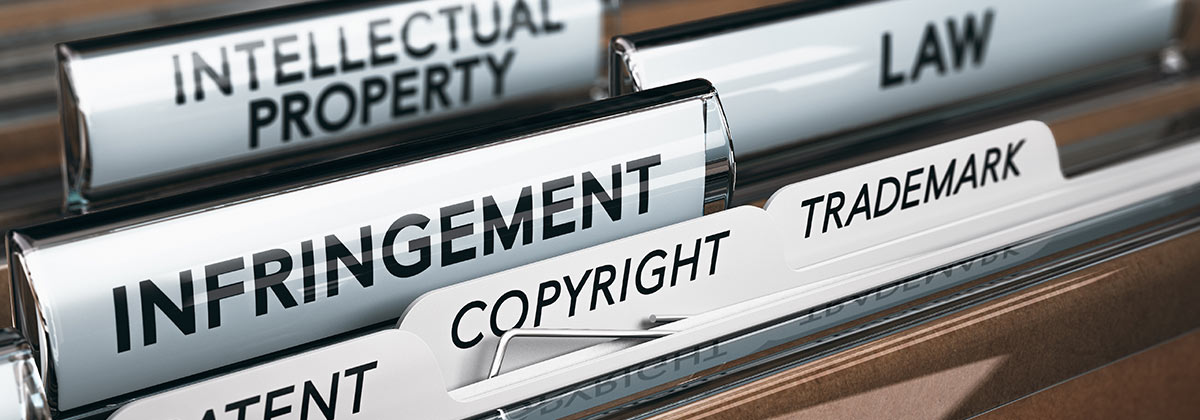SHERMAN IP attorneys boast a legal experience base which encompasses the most sophisticated legal controversies and business litigation proceedings involving Intellectual Property including Patents, Trademarks, Copyrights, Unfair Competition, and theft of Trade Secrets. These complex Intellectual Property and business litigation proceedings often involve controlling competition in the market for your products. SHERMAN IP has extensive experience representing clients in Federal and State Courts throughout the United States, representing clients in Appeals on the Federal and State levels, and representing clients in proceedings extraterritorial to the United States.
SHERMAN IP maintains a worldwide network of partner attorneys and contractors to help represent clients before the Courts and Agencies in every developed country and most undeveloped countries throughout the world. Through these partnerships, we can systemically and efficiently represent our clients in an economically viable fashion. SHERMAN IP attorneys have extensive experience in advanced inter partes proceedings before the United States Patent and Trademark Office such as patent interferences, patent appeals and trademark opposition and cancellation proceedings.
 When it comes to settlements, SHERMAN IP attorneys are practiced in trying to reach negotiated resolutions. SHERMAN IP holds a philosophy that any negotiated resolution where you can control the business aspects is better than most resolutions that are determined by an independent Judge, Jury or other arbiter that may not have your best interests in mind. These negotiated resolutions are quick and efficient agreements that are put in place once a determination of wrongdoing or other controversy has been confirmed and is understood. A negotiated resolution to your controversy can prevent extended and costly courtroom proceedings and protracted litigation. It is sometimes easier to affect a negotiated resolution when one of the parties suspects or knows that there is evidence that will favorably or unfavorably skew the outcome. These resolutions can also reduce the cost and profit loss for both our clients and the opposing party.
When it comes to settlements, SHERMAN IP attorneys are practiced in trying to reach negotiated resolutions. SHERMAN IP holds a philosophy that any negotiated resolution where you can control the business aspects is better than most resolutions that are determined by an independent Judge, Jury or other arbiter that may not have your best interests in mind. These negotiated resolutions are quick and efficient agreements that are put in place once a determination of wrongdoing or other controversy has been confirmed and is understood. A negotiated resolution to your controversy can prevent extended and costly courtroom proceedings and protracted litigation. It is sometimes easier to affect a negotiated resolution when one of the parties suspects or knows that there is evidence that will favorably or unfavorably skew the outcome. These resolutions can also reduce the cost and profit loss for both our clients and the opposing party.
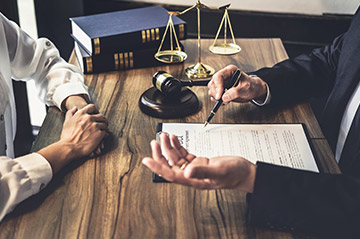 When a dispute cannot be resolved in simple negotiations between the parties, Alternative Dispute Resolution (ADR) techniques can be employed to seek a resolution of a controversy. ADR techniques involve engaging an independent third party knowledgeable in the types of issues involved to help the parties navigate those issues and obtain a resolution. The most common known ADR techniques are Arbitration and/or Mediation, and as experts in our field, at times SHERMAN IP attorneys have acted as Arbitrators and/or Mediators to help others seek resolution to their Intellectual Property disputes.
When a dispute cannot be resolved in simple negotiations between the parties, Alternative Dispute Resolution (ADR) techniques can be employed to seek a resolution of a controversy. ADR techniques involve engaging an independent third party knowledgeable in the types of issues involved to help the parties navigate those issues and obtain a resolution. The most common known ADR techniques are Arbitration and/or Mediation, and as experts in our field, at times SHERMAN IP attorneys have acted as Arbitrators and/or Mediators to help others seek resolution to their Intellectual Property disputes.
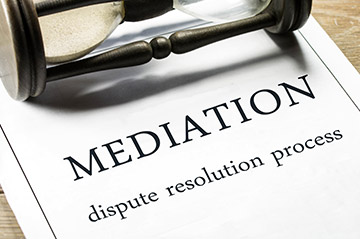 In Mediation, the parties engage in a formalistic system of negotiation coordinated by a professional Mediator. A mediated resolution is not binding unless and until the parties agree to be bound, and even if a resolution is not reached, the process itself often provides a tool to open communication which often leads to later resolution. The communications in these proceeding are confidential and privileged and cannot be held against you in a later proceeding.
In Mediation, the parties engage in a formalistic system of negotiation coordinated by a professional Mediator. A mediated resolution is not binding unless and until the parties agree to be bound, and even if a resolution is not reached, the process itself often provides a tool to open communication which often leads to later resolution. The communications in these proceeding are confidential and privileged and cannot be held against you in a later proceeding.
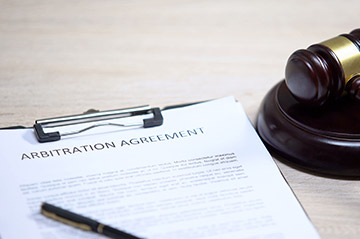 In Arbitration, a small, simple “trial” takes place after limited discovery involving less formal rules of evidence than formal, judicial litigation. A single Arbitrator or an arbitral panel governs the proceedings and the trials often last anywhere from a few days to a few weeks and results in the Arbitrator rendering a decision/opinion as to the outcome of the dispute. Arbitrations can be binding on the parties or non-binding. In non-binding Arbitration, the Arbitration opinion can provide independent direction to the parties as to how the case is likely to turn out in a formal proceeding.
In Arbitration, a small, simple “trial” takes place after limited discovery involving less formal rules of evidence than formal, judicial litigation. A single Arbitrator or an arbitral panel governs the proceedings and the trials often last anywhere from a few days to a few weeks and results in the Arbitrator rendering a decision/opinion as to the outcome of the dispute. Arbitrations can be binding on the parties or non-binding. In non-binding Arbitration, the Arbitration opinion can provide independent direction to the parties as to how the case is likely to turn out in a formal proceeding.
Alternative Dispute Resolution (ADR) techniques are often beneficial to clients as they often provide a quicker and more cost effective means of resolving a dispute than formal litigation and can also result in easier relations between the parties afterwards due to their informal nature.
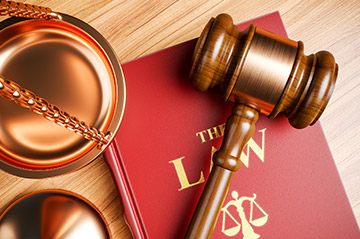 Intellectual Property disputes are often resolved in formal litigation in a Court of Law. In formal courtroom litigation, a party, known as a Plaintiff, files a Complaint with a Court demanding that an accused party, known as a Defendant, be held accountable for a perceived wrong. The Plaintiff may be asking for damages and injunctive relief where a Court issues an order affecting the Defendant’s behavior going into the future. In Intellectual Property disputes the wrong may be infringement of a Patent, Trademark or Copyright, or the theft of Trade Secrets.
Intellectual Property disputes are often resolved in formal litigation in a Court of Law. In formal courtroom litigation, a party, known as a Plaintiff, files a Complaint with a Court demanding that an accused party, known as a Defendant, be held accountable for a perceived wrong. The Plaintiff may be asking for damages and injunctive relief where a Court issues an order affecting the Defendant’s behavior going into the future. In Intellectual Property disputes the wrong may be infringement of a Patent, Trademark or Copyright, or the theft of Trade Secrets.
In complex Intellectual Property matters there may be more than one Plaintiff, more than one Defendant and there may be many complaints, or Causes of Action. This type of complex Intellectual Property litigation requires a specialist to navigate the various rules and procedures, and SHERMAN IP attorneys have extensive knowledge and experience in litigating these complex lawsuits in a cost effective manner to champion our clients’ legal causes.
Formal litigation has formal rules and proceedings for each stage of the proceeding, including filing the initial pleadings, taking of discovery to determine the facts upon which the dispute is based, filing motions to resolve issues in the proceeding, providing evidence to the court and trying the case to a Judge or Jury. The entire proceeding is supervised by a Judge or Magistrate according to specific rules which are different from court to court and jurisdiction to jurisdiction.
When your business interests are at stake and you are funding the high cost of sophisticated Intellectual Property enforcement or defense, you need to make sure that your lawyers can strategically develop your case to achieve the best result in the most cost effective manner possible. SHERMAN IP attorneys are specialists at effectively and efficiently pursuing our clients’ goals in all manner of Intellectual Property disputes.
Read more about federal litigation here:
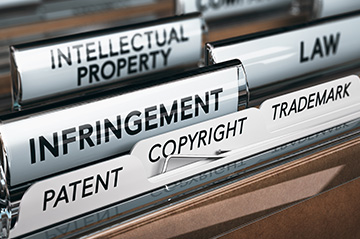 In addition to Judicial Courtroom proceedings, there are also Intellectual Property forums where administrative Inter Partes proceedings take place so that parties can resolve specific types of disputes with a particular goal in mind. Each of these proceedings have a specific purpose and can provide benefits if selected as a forum to resolve your dispute. Sometimes, there is a strategy that involves pursuing multiple proceedings as ancillaries to each other in order to more effectively achieve your goals.
In addition to Judicial Courtroom proceedings, there are also Intellectual Property forums where administrative Inter Partes proceedings take place so that parties can resolve specific types of disputes with a particular goal in mind. Each of these proceedings have a specific purpose and can provide benefits if selected as a forum to resolve your dispute. Sometimes, there is a strategy that involves pursuing multiple proceedings as ancillaries to each other in order to more effectively achieve your goals.
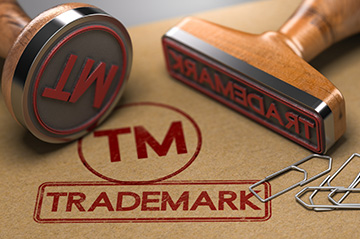 The Trademark Trial and Appeal Board (TTAB) is an administrative court within the United States Trademark Office which acts as a neutral party for certain trademark matters. The TTAB’s main function is to determine whether a party is authorized to register a trademark on the Federal Trademark Register. There are three types of proceedings that are pursued within the TTAB: Appeals, Oppositions and Cancellations.
The Trademark Trial and Appeal Board (TTAB) is an administrative court within the United States Trademark Office which acts as a neutral party for certain trademark matters. The TTAB’s main function is to determine whether a party is authorized to register a trademark on the Federal Trademark Register. There are three types of proceedings that are pursued within the TTAB: Appeals, Oppositions and Cancellations.
Appeals are the most common proceedings handled by the TTAB. During the registration process, the Trademark Examining Attorney may decide to not grant federal registration to an applicant for various reasons. Once a Final Office Action is issued by the Trademark Examining Attorney who refuses to alter their position, the available vehicle to reverse that decision is by appealing to the TTAB.
SHERMAN IP attorneys have extensive experience practicing before the TTAB and are specially qualified to represent you before the Trademark Trial and Appeal Board. In addition to appeals which are Ex Parte Proceedings, the TTAB also has the power to settle controversies between parties, Inter Parte Proceedings, about whether a trademark should be registered on the United States Trademark Register.
Although the TTAB does not have the power to award any monetary compensation to parties, Oppositions to trademark registration and Petitions for Cancellation of existing trademark registrations are routinely fought between parties before the TTAB. An Opposition Proceedings occurs when one party chooses to oppose or “object to” another party’s trademark application and attempts to stop someone from obtaining federal trademark registration. Similarly, a Cancelation Proceeding occurs when a party attempts to cancel a registered trademark from the Federal Trademark Register.
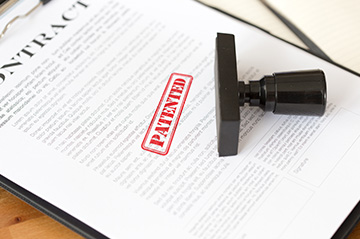 The Patent Trial and Appeal Board (PTAB) is created by statute, and includes statutory members and Administrative Patent Judges. The PTAB is charged with rendering decisions on: appeals from adverse examiner decisions, post-issuance challenges to patents in the USPTO, and interferences.
The Patent Trial and Appeal Board (PTAB) is created by statute, and includes statutory members and Administrative Patent Judges. The PTAB is charged with rendering decisions on: appeals from adverse examiner decisions, post-issuance challenges to patents in the USPTO, and interferences.
 The United States International Trade Commission (ITC) is a federal agency that advises the legislative and federal branches of the government with trade expertise. The ITC also regulates and adjudicates unfair trade practices in relation to copyright, trademark and patent infringement. One type of proceeding which is involved in Intellectual Property rights enforcement are “337 Investigations” authorized by statute under 19 U.S.C. §1337.
The United States International Trade Commission (ITC) is a federal agency that advises the legislative and federal branches of the government with trade expertise. The ITC also regulates and adjudicates unfair trade practices in relation to copyright, trademark and patent infringement. One type of proceeding which is involved in Intellectual Property rights enforcement are “337 Investigations” authorized by statute under 19 U.S.C. §1337.
In 337 Investigations the ITC conducts investigations about unfair practices in import trade. Here, the complainant files a Complaint which causes the ITC to initiate an investigation into the complained of trade practice. If the ITC determines that there have been violations, then the ITC can issue an Exclusion Order to the United States Custom and Border Protection which will exclude the pertinent goods from entering the United States. Most Section 337 investigations involve infringement of United States Patents or United States Trademarks, but they may also involve unfair competition, misappropriation of trade secrets, trade dress infringement, passing off, and false advertising claims.
The SHERMAN IP team assists our clients in matters that go before the United States International Trade Commission (ITC) such as trade information services and IP-import investigations. Our firm also utilizes the United States International Trade Commission (ITC) to complete investigations and analysis on behalf of our clients.

